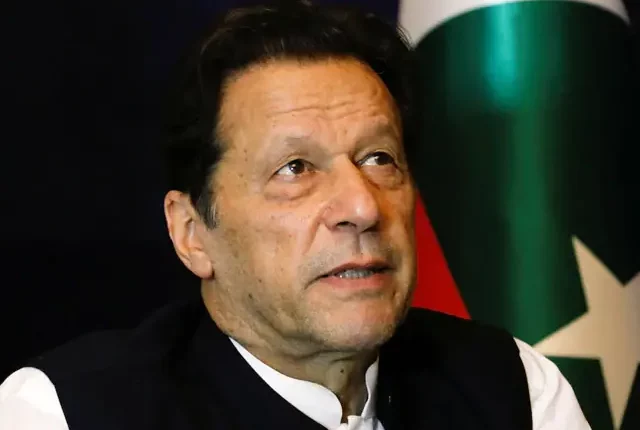Former Pakistan Prime Minister Imran Khan and his top aide have been sentenced to 10 years in prison for their involvement in a case concerning the mishandling of state secrets. The verdict, delivered by a high-profile court in Islamabad, marks a dramatic turn in the political landscape of Pakistan.
Imran Khan, who led the country from 2018 to 2022, was found guilty of illegally possessing and sharing classified information, a charge he has consistently denied. The case, which has been in the courts for several months, centers around documents alleged to contain sensitive national security information. Khan’s top aide, whose identity has not been disclosed for legal reasons, was also convicted for his role in the affair.
The trial, conducted amid tight security, was closely followed by national and international observers. Prosecutors argued that Khan and his aide’s actions had jeopardized Pakistan’s national security, a claim that the defense vehemently contested. They maintained that the documents in question were part of routine governmental communications and posed no threat to national security.
The defense also alleged political motivation behind the charges, arguing that the case was an attempt to sideline Khan, who remains a popular figure among a significant segment of the Pakistani populace. Despite these claims, the court found sufficient evidence to convict both Khan and his aide.
Khan’s party, Pakistan Tehreek-e-Insaf (PTI), has called for nationwide protests, claiming the trial was unfair and politically motivated. “This is not just an attack on Imran Khan but on the democratic ideals of Pakistan,” a PTI spokesperson stated in a press conference following the verdict.
The conviction has significant implications for Pakistan’s political dynamics. Khan, a former cricket star turned politician, has been a polarizing figure in Pakistani politics, credited with introducing reforms but also criticized for his handling of the economy and foreign policy.
International reactions have been mixed, with some expressing concern over the implications for democratic processes in Pakistan, while others view the verdict as a necessary step in upholding the rule of law. It is worth noting that Imran Khan and his aide will appeal the decision and Pakistan braces for a period of heightened political tension and uncertainty. The case is not just about the fate of two individuals but speaks to broader issues of governance, transparency, and the balance of power in a country navigating complex political and security challenges.









